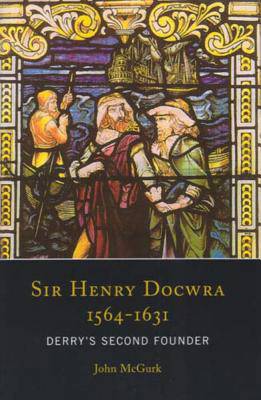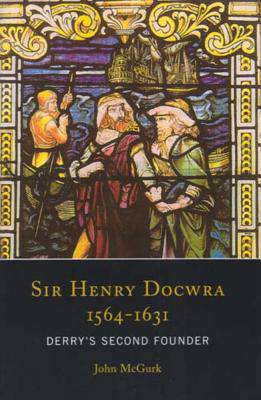
Je cadeautjes zeker op tijd in huis hebben voor de feestdagen? Kom langs in onze winkels en vind het perfecte geschenk!
- Afhalen na 1 uur in een winkel met voorraad
- Gratis thuislevering in België vanaf € 30
- Ruim aanbod met 7 miljoen producten
Je cadeautjes zeker op tijd in huis hebben voor de feestdagen? Kom langs in onze winkels en vind het perfecte geschenk!
- Afhalen na 1 uur in een winkel met voorraad
- Gratis thuislevering in België vanaf € 30
- Ruim aanbod met 7 miljoen producten
Zoeken
Omschrijving
Docwra was an important military commander in Ulster during the Nine Years War responsible for making the crucial divide between O'Neill and O'Donnell by his lodgment of garrisons at Derry and along the Foyle and elsewhere in Tyrone and Donegal. His intrusive military regime laid the foundations of the early modern city of Derry, thereby preparing the way for the first Jacobean charter in 1604 which in turn paved the way for James I's Plantation of Ulster. Docwra suffered at the hands of contemporaries and historians for not being among the inner circle of Mountjoy, Chichester and Carew, either in the Dublin administration or at the privy council and court in London. His prolific pen became his own worst enemy both during his military campaigns and when it came to seeking rewards for his services to the state. Dr McGurk trains the searchlight of long years of research onto the logistics of how Docwra got an army to settle in garrison on the Foyle and gives many insights into the realities of the Elizabethan soldier's life in the early 1600s. Docwra's second career as Treasurer at War in Ireland from 1616 to 1631, is also examined.
Specificaties
Betrokkenen
- Auteur(s):
- Uitgeverij:
Inhoud
- Aantal bladzijden:
- 298
- Taal:
- Engels
- Reeks:
- Reeksnummer:
- nr. 3
Eigenschappen
- Productcode (EAN):
- 9781851829484
- Verschijningsdatum:
- 1/01/2006
- Uitvoering:
- Hardcover
- Formaat:
- Genaaid
- Afmetingen:
- 152 mm x 234 mm
- Gewicht:
- 589 g

Alleen bij Standaard Boekhandel
+ 139 punten op je klantenkaart van Standaard Boekhandel
Beoordelingen
We publiceren alleen reviews die voldoen aan de voorwaarden voor reviews. Bekijk onze voorwaarden voor reviews.









